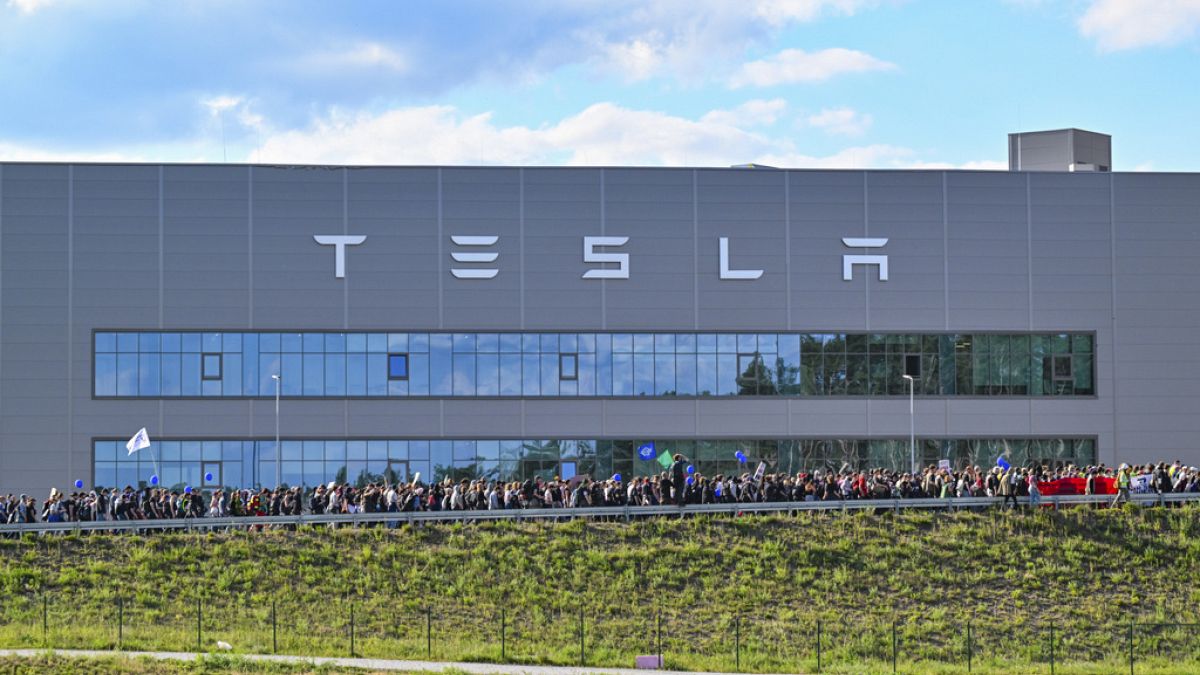The US electric car maker has plans to build the biggest car plant in the country, manufacturing one million cars annually.
Tesla has been told it can start initial works on the expansion of its electric car factory in Grünheide near Berlin, Germany, after being given an environmental permit by the Brandenburg State Environmental Agency.
Tesla’s first European factory is expected to raise production from the currently planned 500,000 cars a year – which has yet to be achieved – to one million after the expansion of the factory.
This would surpass Volkswagen’s main plant in Wolfsburg and make Grünheide the largest car maker plant in the country.
The new permit allows the car maker to start the first of three planned expansion phases, including the construction of infrastructure for storage areas, a battery cell test laboratory and logistics areas.
“This is an important milestone and gives us the necessary planning security to implement projects even faster in the future,” Tesla told news agency DPA.
Emerging new buildings for car and battery production could follow in later stages.
The gigafactory in Grünheide employs 12,500 workers and is seen as key for Tesla to meet the growing demand in the European market.
Tesla boss Elon Musk has called the plant “crucial for accelerating the production of affordable electric vehicles”.
However, demand for EVs in Europe is currently falling, which makes it unclear when Tesla will go ahead with its plans to increase production.
Expansion plans are controversial
Tesla has been widely criticised about the factory, after satellite images showed the company, well-known for producing zero emission cars in factories running on renewable energy, had cut down some 500,000 trees in order to create its giga factory in Germany.
The current approval of the Environmental Agency refers to contruction works that will be carried out on land that Tesla already owns.
However, the local council in Grünheide previously approved another construction, of a railway station for the car manufacturer, on a site not yet owned by Tesla and which would agree require the felling of trees.
The plans were subsequently scaled down after protests from locals and environmentalists. According to Der Spiegel, that means fewer trees than originally planned will need to be cut down.

